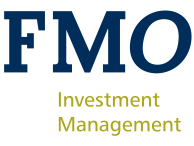


The population of upper-middle-income country Türkiye is spread out across urban and rural areas. The country has a diversified economy and focuses on sectors like electronics, construction, and food processing; many of these industries unfortunately have a strong reliance on carbon-intensive processes and fossil fuels. While the poverty rate rapidly decreased from 20% in 2007 to 6.6% in 2023, around 30% of the population remains at risk of poverty. The unemployment rate stood at 9.1% in 2023, underscoring the importance of investing in local job creation and continued economic growth and resilience in the country.
Kılıç Deniz is a leading global supplier of various Mediterranean fish species, such as sea bream, trout and sea bass, exporting seafood to over 60 countries. Headquartered in Bodrum, it is the largest aquaculture company in Türkiye, having started off as a family business in 1993. The company maintains high ambitions, as it believes that healthy and affordable nutrition is a right for everyone on earth while being produced within the boundaries of a liveable earth. Kılıç Deniz operates an integrated value chain, which ranges from juvenile hatching, fish feed production, fish farming in marine and fresh-water cages, processing and distributing a range of fish products. The company has a strong focus on sustainable aquaculture practices; they are certified by various organizations including GLOBAL G.A.P and the ASC. They are a role model to the industry due to their focus on climate adaptation and mitigation. This includes being effective in reducing their carbon footprint by a continuous shift towards more renewable energy sources.
This has resulted in their carbon emissions being already ~40% lower than the industry average. Kılıç Deniz has a clear focus on social and environmental aspects, resulting in approval of Green labels for their FMO loans.
Most of Kılıç Deniz’s operations are in the country, supporting local job creation in often more rural parts of Türkiye. With around two-thirds of the fish being packaged for export within Europe, the organization provides significant hard currency income and tax contributions for the country. In 2023 they exported at a value of >EUR 250 million, while also providing a sustainable and affordable protein source both locally and abroad.
Kılıç Deniz has been an FMO client since 2019. FMO arranged a syndicated facility in 2021 for EUR 80 mln. In 2023, FMO provided a 100% Green EUR 60 mln syndicated loan. This loan aims to finance their growth plan by realizing more marine fish farms for a wider range of fish species and processing and packaging units in the Black Sea region.

Türkiye is highly vulnerable to climate change; home to 3 important global biodiversity hotspots, desertification threatens to wipe out this biodiversity. Droughts and heatwaves have swept through the country, and the likelihood of extreme weather is on the rise. The country’s GHG emissions account for ~1.3% of the global emissions (coming in at 15th place), further underscoring the importance of urgent climate action.
To that end, Kılıç Deniz’s emphasis on climate action is much needed, such as through lower-than-average emissions. Furthermore, they comply with relevant certifications which encompass health and safety, animal welfare, biosafety, food safety, supply chain and social issues. And as part of their climate adaptation measures, they’re upgrading their cold chain system to keep temperatures stable through the different seasons, including heatwaves. By taking its social and environmental responsibility seriously, Kılıç Deniz can play a role in reducing carbon emissions and positively impacting the climate across the country.
![]()
![]()
![]()
105,000 tons of annual production (of fish)
2,500 employees